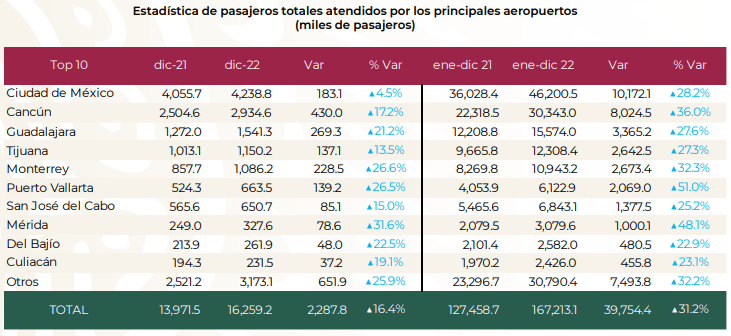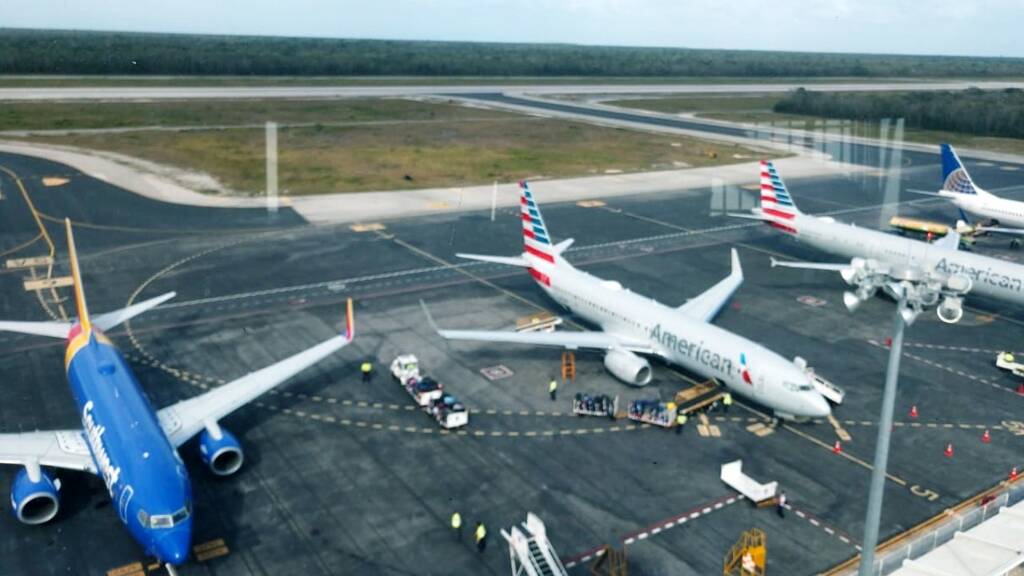Mexico‘s top airports by number of passengers served in 2022 were Mexico City, Cancun, Guadalajara, Tijuana and Monterrey.
According to the Ministry of Infrastructure, Communications and Transportation (SICT), all of Mexico’s airports served 167 million 213,100 passengers last year, up 31.2% year-over-year.
Other airports highlighted in 2022 are: Puerto Vallarta, San José del Cabo, Mérida, Del Bajío and Culiacán.

In Mexico, airport operators must provide airport services or, alternatively, contract with third parties; in this case, contracts require the approval of the Federal Civil Aviation Agency (AFAC).
At airports managed by private sector concessionaires, service fees are still regulated.
For each service, the SICT determines a maximum tariff per traffic unit (equivalent to 1 passenger or 100 kg of cargo), based on the concessionaire’s investment plan.
Thus, tariffs can be adjusted after taking into account the annual efficiency indicators achieved by the concessionaire and inflation.
The airport use fee (TUA) paid by all passengers is one of the regulated fees.
Major airports
The revenue generated by the TUA amounts to more than half of the airports’ total revenue and is, therefore, an important resource for the concessionaires.
ASA, AICM and AIFA continue to set all the tariffs for the airports they operate, but these must be approved by the SHCP and registered with the AFAC.
Until 2018, ASA was the sole provider of aerial fuel storage, distribution and supply services.
In 2018, Mexico liberalized that market. However, Foreign Direct Investment (FDI) can be at most 49% of the capital of the companies that supply fuels.
To facilitate the opening of the market, during a transition period (from 2018 to 2019), ASA allowed new entrants to contract available capacity from its storage infrastructure, according to information from the World Trade Organization (WTO).
A permit from the Energy Regulatory Commission (CRE) is required to supply jet fuel.
The authorities indicate that ASA is still the main supplier.
Airlines may provide ground handling services themselves or contract with another company, which may be another airline. A permit from the ACAA is required to provide these services.
![]()

